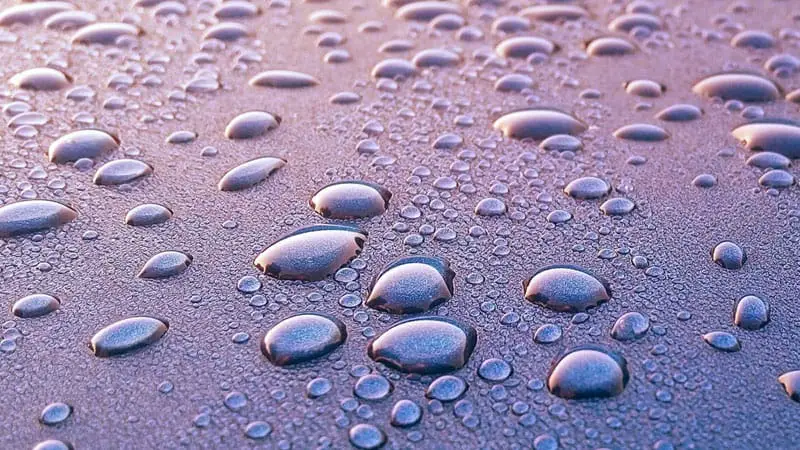According to research, rain is the purest form of water available on earth. That is so because the evaporation of the water by the sun causes the impurities and salts present in it to be removed. Furthermore, rainwater offers tons of amazing benefits for humans.
One of the essences of rainwater is that it’s excellent for the survival of plants and animals. Besides, it is also said to be of great benefit to human hair – it washes better and helps to soften the hair. However, you need to understand that rainwater isn’t without its issue.
Have you ever noticed that your car gets dirty as soon as it stops raining? If so, know that you are not alone as this is extremely common.
The reason why cars get dirty after being exposed to rain is that raindrops are not so pure. As they fall from the clouds, raindrops capture particles and impurities present in the air – such as chemicals, pollen, pollutants, dust, and smoke – which are usually left behind on cars after the rainwater dries up.
You may already have heard of acid rain, but what does it include? Why do cars get dirty after it rains? Should you wash your car after it rains? You’ll find answers to these questions and more as you read through the rest of this article.
What Is Acid Rain and What Exactly Causes It?

According to the U.S. Environmental Protection Agency (EPA), acid rain is a term used for any type of precipitation with acidic components that is more than that of natural rainwater. These acidic components can be sulfuric, or nitric acid and they can always fall to the ground in wet or dry form.
The pH of normal rainwater is usually between 5.6 to 5.8, which is slightly acidic. This lite acidic nature of rainwater is due to the presence of carbon dioxide in the atmosphere. However, when the rain comes in contact with sulfur dioxide or nitrogen oxides in the atmosphere, this causes acidic rain, which usually has a pH value of 4.0.
What Is the Cause of Acid Rain?
As earlier mentioned, acid rain is caused by the presence of sulfur dioxide or nitrogen oxides in the atmosphere.
Here’s how acid rain is formed in the air; when sulfur dioxide (SO₂) and nitrogen oxides (NOx) emissions are released into the air, the pollutants get transformed into acid particles, which are then transported over long distances with the help of wind. The acid particles, when they come in contact with water and other materials, fall on the ground as acid rain.
As earlier mentioned, acid rain can always fall to the ground in two different forms. First, it could come in the wet form as rain, snow, cloud water, sleet, fog, and dew. Besides, acid rain could also come in the dry form, as acidifying particles and gases.
Why Do Cars Get Dirty After It Rains?
Now, let’s go back to the burning question of this post; why do clean cars get dirty after rain?
The answer to the question is simple; the main reason why your car gets dirty after rain is because of the effect of acid rain.
As you now know, acid rain is formed by the reaction of normal rainwater with acidic particles caused by the presence of sulfur dioxide and nitrogen oxides. These particles are either pollen, pollutants, dust, smoke, or a mix of them.
So, before normal rainwater drops to the ground, it usually collects all the acidic particles from the atmosphere, becoming acid rain. Unfortunately, when acid rain falls on your vehicle and later dries up, the particles will be left behind on your car. That’s exactly how your clean car becomes dirty after rain.
Is It Good to Leave Cars Unwashed After Rain?

Here’s another frequently asked question, is it good to leave your car unwashed after rain?
Many people have this belief that once there is rain, it will wash and get their cars clean. But this is not always the truth, especially if you live in an industrial city. Instead, the rain, which is usually acidic, will make your car dirtier than you ever expected. That’s so because rainwater doesn’t have enough pressure to wash off the dirt and grease on the vehicle even if the car is dirty before the rain.
Furthermore, when rain falls, it deposits acid particles, such as pollen and pollutants, on your vehicle. You need to understand that the longer the time you let pollutants and other particles remain on your car’s finish, the more damage it’ll cause to your vehicle. Yes! The acidic particles on the vehicle, after rain, will inflict more damage on the car’s paint finish, which will most likely cost you a lot of money to replace.
Bottom line: the main reason why you need to wash your car as soon as rain falls on it is to prevent the paint finish on the exterior of the car from getting damaged by pollutants and dirt.
Conclusion
Rainwater is, no doubt, the purest form of water on earth. However, when it begins to drop on the ground, it often comes in contact with acidic particles, caused by the presence of sulfur dioxide and nitrogen oxides in the atmosphere. The coming together of acidic particles and normal rain causes acid rain.
Acid rain is common across most countries in the world, especially in industrial cities. According to the US EPA, acid rain isn’t dangerous to humans when we walk inside it. However, it could harm your car’s paint finish if the water ends up evaporating and leaving pollutants and other acidic particles on your vehicle for a longer period.

